TAGKF Holds Panel Discussion with JIACC Chairman
14 Feb 2017AMMAN - Talal Abu-Ghazaleh Knowledge Forum (TAGKF) held a panel discussion with Chairman of the Jordanian Integrity and Anti-Corruption Commission (JIACC) HE Mr. Mohammad Al Allaf under the patronage of the Forum’s Chairman HE Dr. Talal Abu-Ghazaleh.
The session entitled "National Strategy for Integrity and Anti-Corruption 2017-2025” comes in line with TAGKF's objective to transform Jordan to a knowledge-based society that achieves the maximum progress and prosperity for the Kingdom.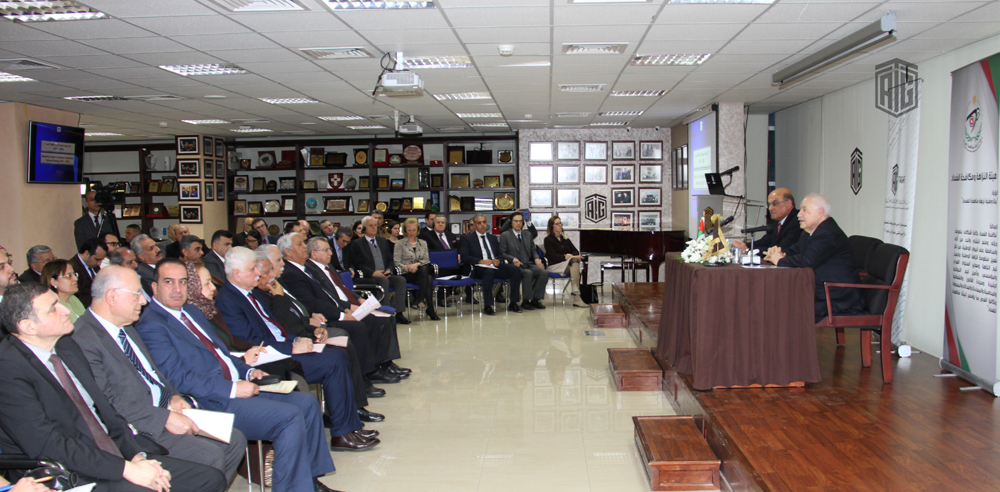
Dr. Abu-Ghazaleh welcomed Al Allaf and emphasized the importance of addressing integrity and anti-corruption.
"We want to be proud of our maximum transparency and integrity rather than discrediting government institutions’ integrity or unveiling corruption cases,” Dr. Abu-Ghazaleh highlighted and commended His Majesty King Abdullah II directives in ensuring transparency and integrity in Jordan.
His Majesty honored Dr. Abu-Ghazaleh by appointing him one of the Royal Integrity Commission's member, which formulated the National Integrity Charter (NIC). Dr. Abu-Ghazaleh stated that this was a very special mission for him personally, as he used to look into transparency laws and standards worldwide to formulate the best standards.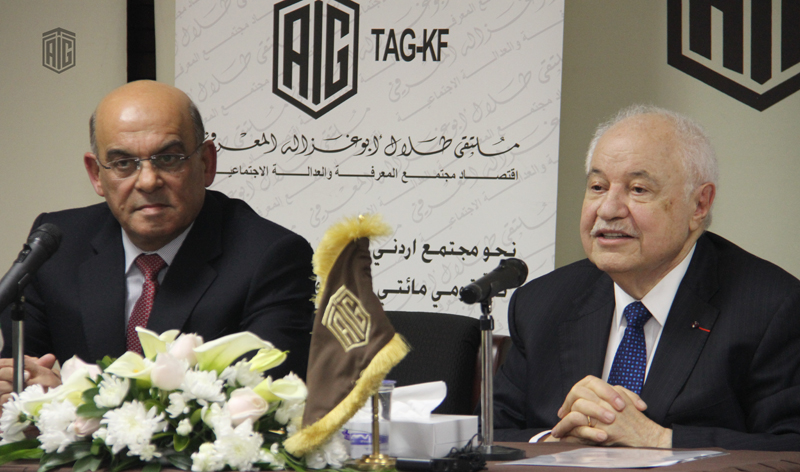
He also underlined Talal Abu-Ghazaleh Organization’s (TAG-Org) experience in financial audit and translation of international standards on auditing. He, moreover, highlighted the need for internal quality assurance to ensure the quality of work and the importance of independent internal audit.
From his side, Al Allaf said that JIACC has already started bridging legal gaps, especially with regard to changing orders in governmental tenders.
"Integrity and anti-corruption is a broad headline and we are in a dire need for completing comprehensive reform process as directed by his Majesty King Abdallah II,” Allaf stated, adding that although JIACC's has only been established ten years ago, however, it encountered various political crises and challenges.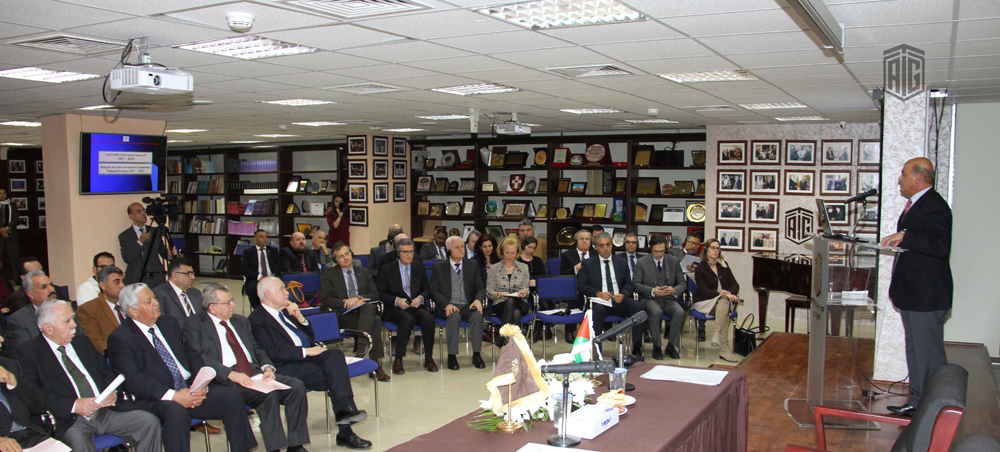
He pointed out that poor control systems and absence of accountability resulted in spread of corruption and assault on public funds and rights of others. That phenomenon was attributed to the laxity of control authorities in performing their duties due to legislations or tolerance of officials, stressing that absence of civil society organizations and extended timescale of litigation procedures resulted in decreasing the level of the desired national transparency and level of citizen's confidence in government's institutions.
Allaf added that JIACC's aim of increasing its outreach with all segments of the society is to disseminate concepts of integrity and transparency and shed light on principles of fairness, equity, equal opportunities and combating all kinds of corruption to achieve a corruption-resistant society and consider it as a problem that is rejected by all religions and ethical values.
He clarified that the law of the Jordanian Integrity and Anti-Corruption Commission (JIACC) resulted in enormous responsibilities in management and implementation of national integrity. Under the law, JIACC is also responsible for ensuring public management's commitment to governance and standards of equality and eligibility in implementing legislation, ensuring availability of legal frameworks that govern decision-making process and monitoring management and senior officials’ compliance with integrity principles irrespective of their positions or social status.
He said JIACC's entry to a new stage imposed new responsibilities on it, making it a unique constituent to anti-corruption entity and ombudsman.
Allaf reviewed the components of the National Strategy for Integrity and Anti-Corruption 2017-2025 that include national integrity, awareness raising, prevention, law and legislation enforcement, strategic partnerships, communication, media and institutional capabilities. 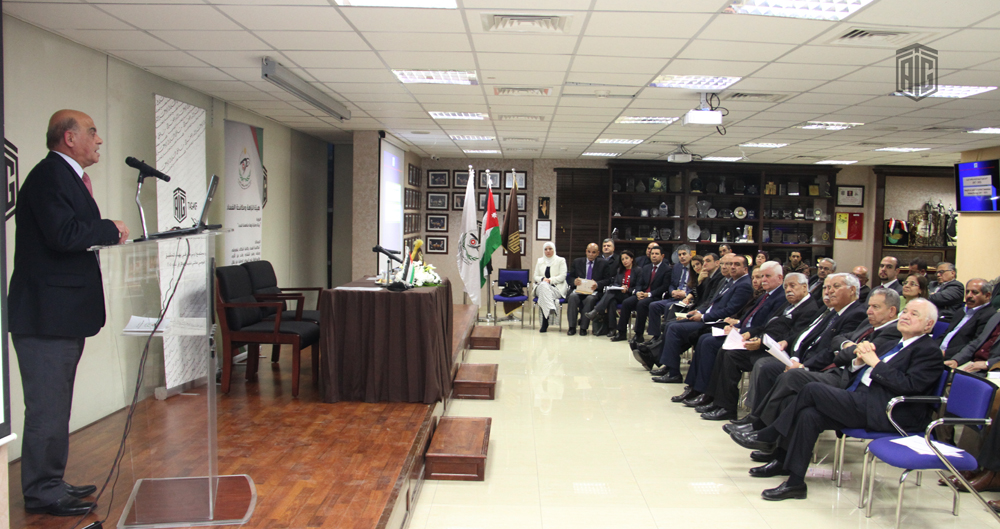
The National Strategy for Integrity and Anti-Corruption aims at activating national integrity system, setting standards and principles of integrity with a view to creating a corruption-resistant society and preparing national society to participate in combating corruption efforts through national awareness-raising activities at individual, institutions and community levels.
The Strategy, moreover, aims at preventing corruption, , enforcing the law as a principle for rule of law and developing of well-formulated applicable and future legislation in a way that removes legislative gaps. It aims also at enhancing partnerships and integrated efforts with local and international partners, improving channels of communication, improving JIACC's institutional capabilities and developing JIACC performance in a way that increases its accomplishments. 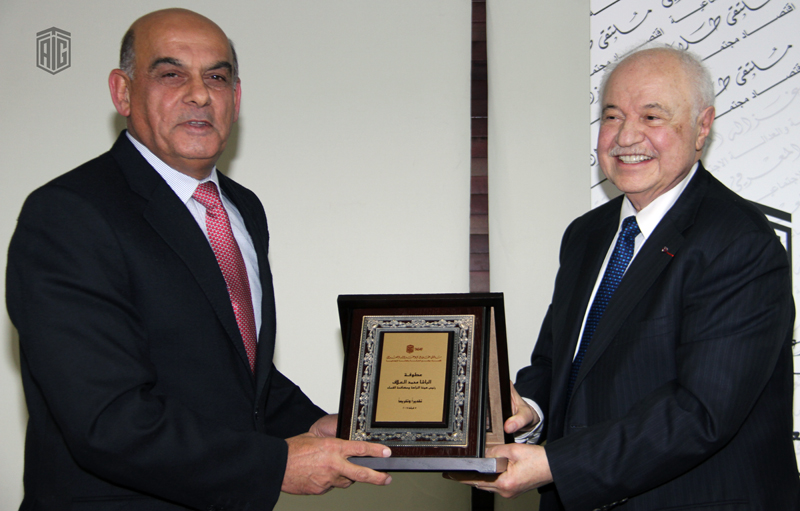
The Strategy focuses on a set of programs, including: rule of law, combating nepotism and favoritism, governance, promoting behavioral values and rules at individual and institutional levels and promoting transparency and information availability.





